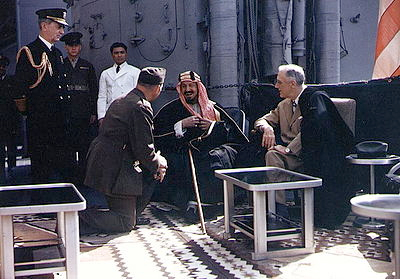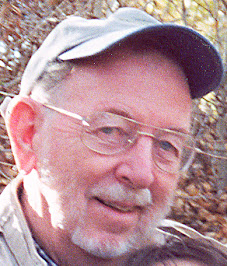19 cents a gallon! That’s my earliest recollection of the price of gasoline, probably in 1951 when I turned 16 and got a driver’s license. What a prize, eh?
The word prize comes to mind because thinking about the price of gasoline for me always brings up the title of Daniel Yergin’s Pulitzer Prize-winning 1990 book on the oil industry, The Prize: The Epic Quest for Oil, Money and Power.
That is, oil = money = power. And that’s power in both senses, power to run the machine and power over those who have less oil, money and power.
I mentioned in an earlier post the struggle for the prize between Japan and the U.S., the U.S. having blocked Japan’s access to sources of the prize in Southeast Asia, provoking the Pearl Harbor attack in 1941. The Japanese lost out in their quest for the prize, and by late July in 1945, the battleship Nagato, Admiral Yamamoto’s Pearl Harbor task force flagship, lay helplessly out of fuel at the main base of the Imperial Japanese Navy in Yokosuka. (There’s more to this story, involving why the Yokosuka naval base became after WWII and to this day still is a U.S. naval base, home port to the nuclear-powered aircraft carrier George Washington, CVN-73, but I don’t want to go into it now.)
Then there is Nazi Germany in World War II, with lots of coal but no oil. In those days, European countries either imported oil from the U.S. or got it from oilfields around Baku, Azerbaijan. Which was Russian territory. So when the war started, Germany’s oil imports stopped. Germany built twelve huge coal gasification plants turning coal into diesel and aviation fuel. It worked, at least for a while. But coal, valuable as it is, is more like the booby prize of energy when compared to oil. It soaks up way too much energy, manpower and money to produce not really enough of those precious fluid fuels so easily produced from the Grand Prize, Oil.
Take a look at this short film clip (on YouTube) from World War II showing Hitler with his generals at a party, it might have been Hitler’s birthday, but it certainly was about the prize. The cake is decorated with a chocolate outline of Azerbaijan and lettering saying (in German) “Caspian Sea.” A piece of the cake, with “Baku” spelled out in chocolate, is offered to Hitler. Separate historical sources report that Hitler was announcing the launch of the southern campaign against Russia and said to his generals at the time, “If we don’t take Baku, the war is lost.”
They didn’t take Baku. Or Stalingrad. Or Moscow. They lost the war. Because they didn’t win “the prize?” I think at least partly.
What is for sure is that war is a large part of the price of the prize. Just not necessarily included in the price of the gasoline at the pump, but for sure in the taxes we pay and the ballooning public debt no one will ever be able to pay, so what will happen when . . . .
In today’s dollars, my 19-cents per gallon gasoline of 1951 would be priced at about $1.70. That’s “adjusted for inflation.” But the current actual price of gasoline at the pump in these parts is about $3.29. Close to twice what you would expect if inflation was the only factor involved. Yes, I know, “they” will charge us whatever they can get. And the “free” market fluctuates sometimes wildly. But there is also a physical fact to reckon with. That 1951 oil was cheap at the pump largely because it was cheap to get out of the ground. That is, cheaper both in money and in the energy required to get it out of the ground. Nowadays, it doesn’t even come out of the ground. It comes out of fracked shale, tar sands and the bottoms of oceans. Hard to get.
So the price of the prize goes up and up at the pump because of inflation (think profits to bankers and financial speculators) and because it just gets harder and harder to get at. And the price we pay in lost blood and treasure in wars getting and defending the prize goes on and on.
And then there is the price – really, the cost, that is, the consequences – of continuing to take what used to be a Grand Prize out of the ground, the shale, the tar sands and the ocean bottoms and consuming all of it. Bringing on ourselves the curse of catastrophic climate change.
You may have noticed I said “consuming all of it,” rather than what you might have expected, “burning all of it.” The more general term, consuming, is exactly right here. One way or another, The Prize gets converted into products we consume, not just fuel we burn. Along the way, over the past couple of hundred years, turning us into mere consumers, which we had never been before.
And along with all those wonderful plastic and chemical products we poison ourselves with, The Prize provides the food products we eat. A particular eye-opener for me about this was Richard Manning’s article, “The oil we eat: Following the food chain back to Iraq,” in Harper’s, February 2004. His 2005 book is titled Against the Grain: How Agriculture Has Hijacked Civilization.
I will have more to say on this.
PS -- Just to help nail down the connection between war and oil, here's a photo of President Franklin Roosevelt meeting with Saudi Arabia's King Ibn Saud on board the cruiser USS Quincy in February of 1945. Result: a secret agreement in which the U.S. would provide Saudi Arabia military security – military assistance, training and a military base at Dhahran in Saudi Arabia – in exchange for secure access to supplies of oil. Saudi Arabia was at that time not yet a major producer of oil, but the discoveries had been made and top planners in the US government were eager to get control over as much of that prize as they could, wherever it was found. Possible blowback: most of the supposed 9/11 attackers were Saudis who did not like American presence in or influence over Saudi Arabia.
PS -- Just to help nail down the connection between war and oil, here's a photo of President Franklin Roosevelt meeting with Saudi Arabia's King Ibn Saud on board the cruiser USS Quincy in February of 1945. Result: a secret agreement in which the U.S. would provide Saudi Arabia military security – military assistance, training and a military base at Dhahran in Saudi Arabia – in exchange for secure access to supplies of oil. Saudi Arabia was at that time not yet a major producer of oil, but the discoveries had been made and top planners in the US government were eager to get control over as much of that prize as they could, wherever it was found. Possible blowback: most of the supposed 9/11 attackers were Saudis who did not like American presence in or influence over Saudi Arabia.



No comments:
Post a Comment